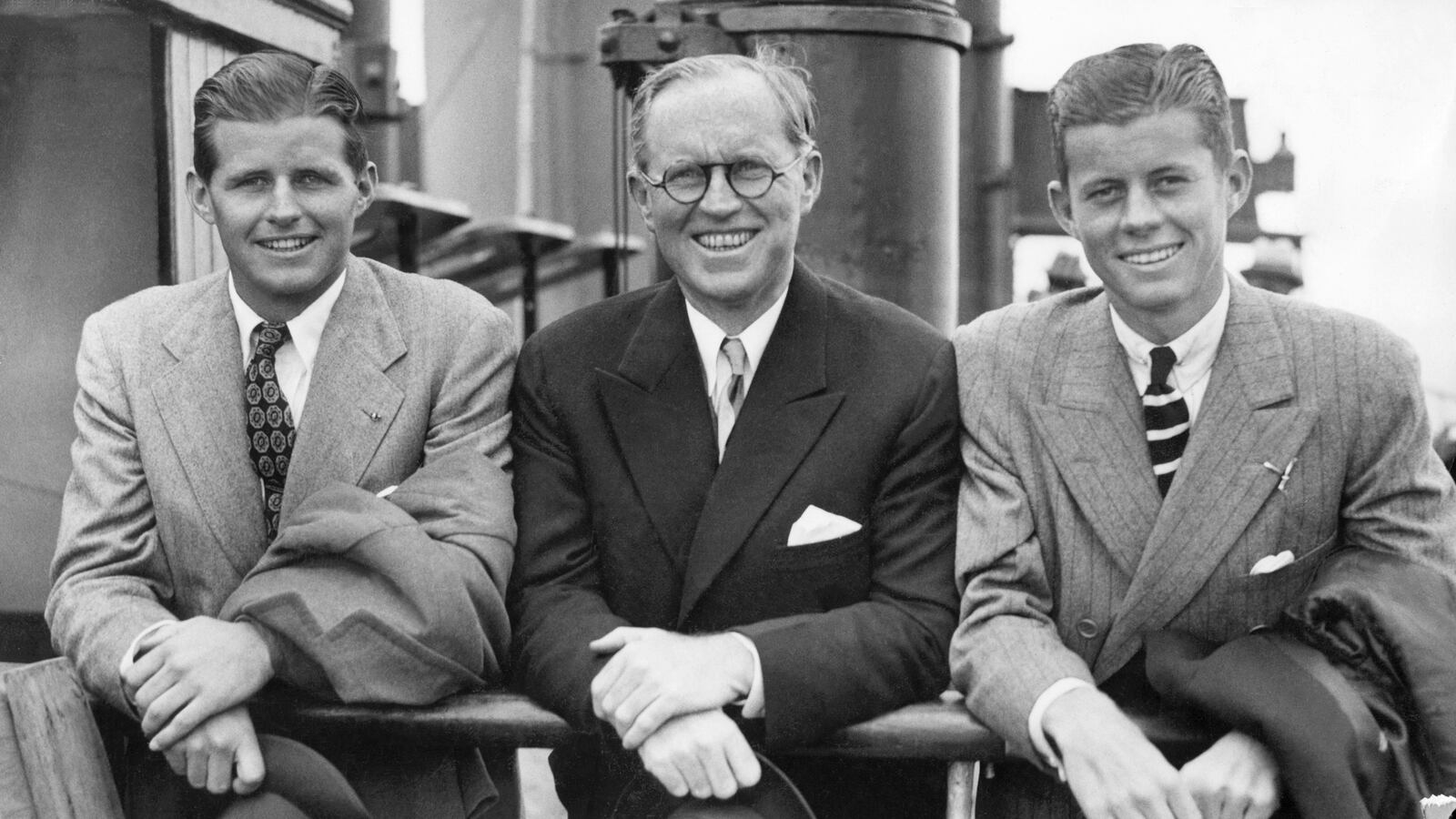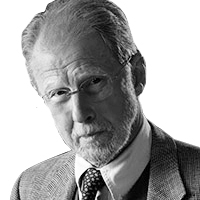I never met Sen. Edward M. Kennedy—the closest I came to having anything to do with him was publishing Joe McGinniss’ book about him, which, if nothing else, taught both of us just how sharply the Kennedy family and its enablers could react to anything they construed as criticism, which probably ought not to have come as a surprise to either of us.
I never met President Kennedy, either, though I admired him. I did meet Sen. Robert Kennedy, and it taught me something about political charisma. In the 1960s, my then-wife and I used to rent a big house at Dark Harbor, Maine, for the summer, and I used to fly up on weekends from New York City (Northeast Airlines, via Boston, to Camden, Maine, on the “mainland,” as Dark Harbor residents dismissively referred to the rest of the United States and Canada). Houses at Dark Harbor were referred to as “cottages,” however big they were, and most of them were huge and old, with a whole floor upstairs in the attic filled with small rooms for the servants. As for the summer residents, they tended to be elderly, WASP, and rich, and included Douglas Dillon, President Kennedy’s secretary of the Treasury and an ambassador to France, and others similarly well-connected, though for the most part, Republican rather than Democratic in politics.

Sailing was one of the main attractions of Dark Harbor, and almost everybody there joined in the weekly races, including myself (modestly, as a member of Peter Tompkins’ crew, which was like sailing with Captain Bligh). Anyway, at the weekly Saturday evening cocktail/barbecue party at the Dark Harbor Yacht Club that followed the race, there was this large crowd of casually well-dressed people (wearing the kind of clothes Ralph Lauren would later make popular before he himself even existed as a fashion influence) knocking back drinks in noisy camaraderie. There was a broad staircase leading down from the entrance into the big room in which drinks were being served, and all of a sudden there was a collective gasp, an intake of breath, and everybody looked toward the top of the stairs, as of course did I.

What I saw, standing there, somehow brightly lit, was Robert Kennedy, dressed in a bright Kelly green linen blazer, rumpled white cotton Chinos, well-worn leather Topsiders without socks and a pale blue polo shirt. He had a glowing tan, his mop of hair seemed to be brightly incandescent, his eyes were a startling blue, the whites accentuated by his tan. He was smiling rather shyly, like somebody entering a place full of strangers where he had never been before, and hoping to find a friendly or a familiar face. My wife, not a woman easily impressed, said, “Oh, my God!”
So did almost everybody else. These were, for the most part, rich people, indifferent to the Kennedy mystique, instinctively Republican, very snooty about people who were in any way “glamorous” as opposed to solid and substantial, the kind of people who would never be seen dead in the Hamptons, but it didn’t matter a bit. RFK just stood there momentarily, positively radiating a charisma so thick you could cut it with a knife, and so bright that it lit up everybody else for a moment, as if he were lit from within by invisible Klieg lights. Krishna suddenly appearing with his flute to dance in his own aura would not have attracted more attention, or greater idolatry, and this among people most of whom thought “Bobby” Kennedy was a snotty brat with ideas about taxing the rich that had once made FDR “a traitor to his class,” to the parents of this crowd.
It turned out that Bobby had been sailing on the boat of Tom Watson, the then-president and founder of IBM, and they had anchored in Dark Harbor for the night. I only got a chance to talk to him once as he descended into the crowd of people around the bar, carrying his charisma with him like a halo. I told him I liked his blazer. He blushed. “It’s not mine,” he explained with embarrassment. “I borrowed it from somebody, to come here,” and as I looked at him more closely, I realized it was at least two sizes too big, and the sleeves were too long.
Not many politicians have that combination of glamour and charisma—Jack Kennedy had it in spades, as well as a natural laid-back charm, which Bobby could only produce with effort, since he was usually as tightly wound as a spring, and quick to take offense. It would have been interesting to see how he would have fared as president, and whether reaching “the top of the greasy pole,” as Disraeli referred to the prime ministership, might have relaxed him some.
Some of that charisma descended on Teddy Kennedy, as effortlessly as the Kennedy looks, and the big-toothed smile, and the easy Irish political smoothness. When he entered a room, even if it was full of celebrities, Teddy simply outshone them. He didn’t have to do anything, the charisma of being a Kennedy brother simply came naturally to him, part of his inheritance, along with the money, the good looks, and the unlimited sense of entitlement.
Robert Kennedy just stood there momentarily, positively radiating a charisma so thick you could cut it with a knife, and so bright that it lit up everybody else for a moment, as if he were lit from within by invisible Klieg lights.
Like his brother Bobby, he made a huge effort to overcome all that and turn himself into a serious politician, and succeeded, perhaps because being a Kennedy he couldn’t imagine failing. He became, in fact, despite the wild youth, and the Falstaffian middle age, the most serious politician in the Kennedy family, even an earnest politician, which Jack could never be, but whether one saw him in person, as I very occasionally have, or on television, the charisma was simply there, something special and impossible to fake, that made it possible for Joe Kennedy’s sons to overshadow even movie stars, seemingly without effort. It’s not something you see in politics very often, still less in democratic politics. FDR had a certain charisma, at least in his first term, with the big grin, the cigarette holder at a jaunty angle, and the battered hat on his imposing head, but no other American president since then has had it except JFK—indeed, some of them have been positively anti-charismatic, like Gerald Ford, Carter, and the Bushes. From time to time one imagined Bill Clinton had charisma, but it never really was more than an occasional false glare. Ronald Reagan had a kind of shallow movie-star charisma, a combination of makeup and the skill of a good actor—but it wasn’t the real thing, and was something that he could turn off when the cameras weren’t running.
But Edward Kennedy, despite his much more solid accomplishments as a senator and as the last successful, uncompromising liberal who stuck to his guns when it came to his beliefs and principles, had a charisma that drew your eyes to him, and framed him naturally, not as strong as his brothers’, but strong enough, and maybe it's the last time for a long time we will see it in politics. He didn’t need big crowds and stage management, as Obama did during his campaign (without them he comes across as a patient grade-school teacher). He was a Kennedy; he just needed to appear and be himself, like Bobby all those years back.
I will miss him.
As for his charisma, we may not see its like again.
New York Times bestselling author Michael Korda's books include Ike, Horse People, Country Matters, Ulysses S. Grant, and Charmed Lives.






